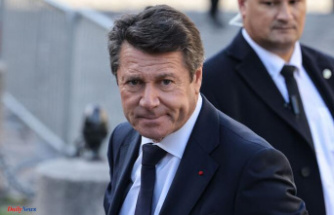The World Nature Summit in Canada still has 15 open points of contention to work through by mid-December. At the end there should be a global declaration that stops the extinction of species. But the financing of all the ambitious plans is completely unclear.
The UN Biodiversity Conference COP15 started in Montreal, Canada, with a daunting task: within two weeks, delegates from almost 200 countries have to sign a historic agreement if they want to prevent the irreversible extinction of animal and plant species and ecosystems. The conference is "our chance to stop this orgy of destruction," said UN Secretary-General António Guterres. Due to its uncontrolled economic growth, "humanity has become a weapon of mass destruction".
Delegates aim to reach a global agreement to effectively halt species extinction by 2050. Environmental organizations compare the hoped-for agreement in its importance with the Paris climate protection agreement. "In order to secure our life support system on earth, we have to reduce the damage to nature to zero," said the director of the Potsdam Institute for Climate Impact Research (PIK), Johan Rockström.
Time is of the essence: according to estimates, around one million of the estimated eight million animal and plant species on earth are currently threatened with extinction. In the past 500 years alone, 680 species of vertebrates have disappeared forever and species extinction has accelerated massively in recent decades.
From the point of view of the Federal Government, a central project for the COP15 is to place at least 30 percent of the land and sea under protection by 2030. According to Federal Environment Minister Steffi Lemke, Germany still has "homework" to do on the subject of protected areas, despite good approaches. "Economic models that have grown over decades, sometimes centuries" would have to be changed "if we want to give our children a planet on which they can still enjoy living and doing business". To do this, the subsidies in agriculture "must be aligned with biodiversity goals," emphasized the Green Environment Minister.
However, the species protection agreement should contain further requirements. Among other things, it is about the renaturation of destroyed ecosystems, less use of pesticides and less plastic waste. As with climate protection, all states should also submit national strategy and action plans (NBSAP) for the protection of biodiversity. These should then be regularly improved on the basis of reports from the World Biodiversity Council (IPBES).
However, after three years of tough interim negotiations in preparation for COP15, an agreement remains uncertain as there are still a number of points of contention. So far, agreement has only been reached on five out of more than 20 points. "We only have a few days to act decisively," said the head of the UN Environment Program (UNEP), Inger Andersen. The Head of the Secretariat of the UN Convention on Biological Diversity, Elizabeth Mrema, called on the participants for "flexibility, compromise and consensus".
One of the biggest bones of contention is funding. Several states are demanding that rich countries provide at least 100 billion dollars (a good 95 billion euros) a year for species protection in developing countries. Some countries have also spoken out in favor of a biodiversity fund, which the industrialized countries largely reject. Instead, they want to improve existing financing mechanisms, particularly via the development banks.
According to Minister Svenja Schulze, the German Development Ministry wants to promote nature conservation at COP15 that also offers development opportunities for people. "Nature conservation works best when it also offers the locals an economic perspective," explained the SPD politician. "It must be more worthwhile to live from nature than from destroying it."
Heads of state and government are largely absent from the COP15, which lasts until December 19. From December 15, the federal states will be represented by their environment ministers. Environmental organizations therefore fear that there is not enough pressure behind the talks and that an ambitious agreement could fail to materialize.












